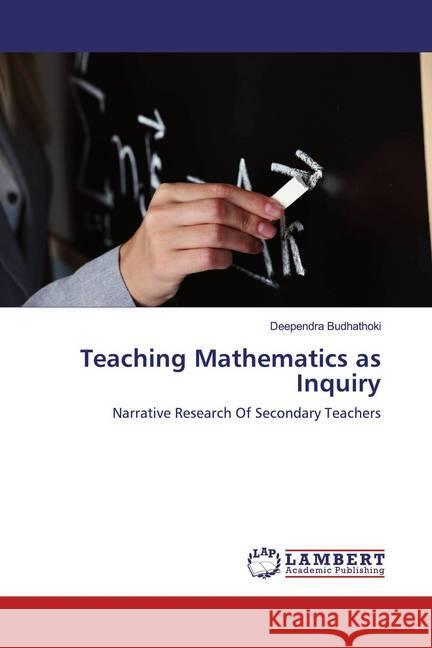Teaching Mathematics as Inquiry : Narrative Research Of Secondary Teachers » książka
Teaching Mathematics as Inquiry : Narrative Research Of Secondary Teachers
ISBN-13: 9786139580101 / Angielski
Most mathematics teachers are equipped with traditional beliefs on mathematics and teacher-centralism as behavior; as such they regard themselves and textbooks as the only source of knowledge. Mostly the alternative approaches in mathematics solutions are not well valued. The way that teachers guide, are generally considered ultimate, and students are forced to follow their guidelines. Mathematical practices in Nepal largely emphasize the transfer of either perennial mathematical values or the neo-colonized attributes; that the scope of mathematics learning is largely limited repetition and reproduction in future day-teaching.The inquiry-based mathematical practices focus on students' active engagement, understanding and meaning making throughout the practices. In an inquiry-based teaching, students are exposed to real-life situations and provided to solve the problems that they are likely to face in real-professional life. During the mathematical inquiry practices, students collaborate to solve either the mathematical problems or the problems mathematically. It, hence, will be focusing on teachers' perceptions and practices on inquiry practices of mathematics teaching.











